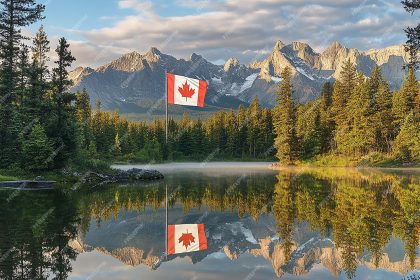Africa, a vast continent with unique cultural and ethnic diversity, is home to thousands of tribes, each with their own unique traditions, beliefs and languages, playing a vital role in the history and culture of this land. From the vast savannah plains to the dense tropical forests, every corner of this continent has witnessed the birth and growth of tribes that have preserved their identity through stories, music, dance and art. African tribes not only represent a rich history of social relations, wars, and alliances, but in close coexistence with nature, they have passed on deeply rooted customs to future generations.
The history of the origin of different tribes in Africa
Since ancient times, when early humans started to build small communities, African tribes were among them. These African tribes, like other societies, were initially gathered together for group hunting, gathering food and to protect themselves from the attack of wild animals; But gradually they became complex and larger societies, with their own culture and tradition. If you wonder why the number of tribes in Africa is so large, the answer includes several reasons, such as large migrations, climate changes, and confrontation with other cultures!
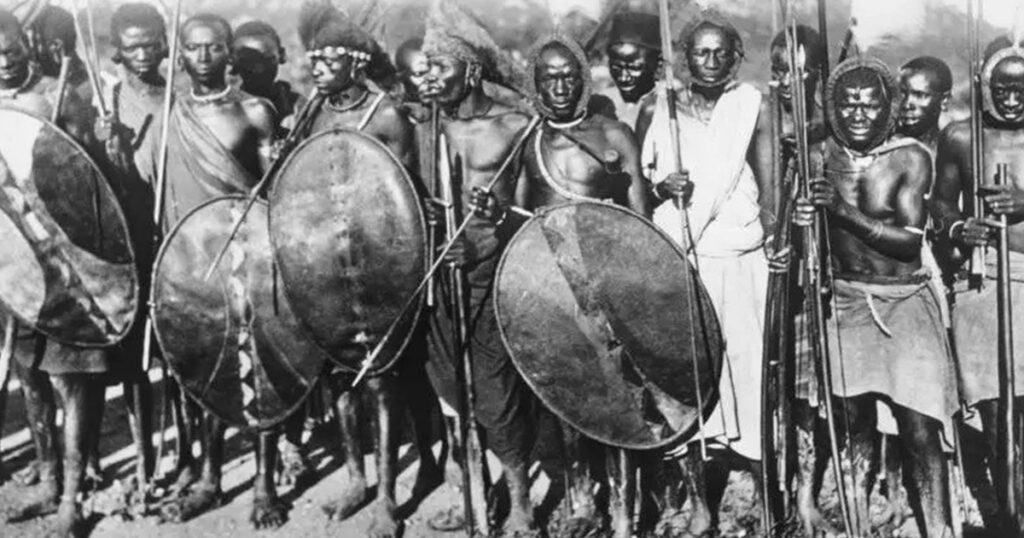
The most famous tribes of Africa
In the following, we have introduced a number of important African tribes and for ease of reading, we have mentioned the important information in a bullet-like manner:
Maasai tribe
One of the most famous tribes in Africa is the Maasai who migrated from Sudan to Kenya and Tanzania 15 centuries ago and still adhere to their traditions over the years. Even in relation to his job, he is still engaged in raising cattle, sheep and goats! But raising livestock for the Maasai is not only for living; Rather, it should be noted that cows and especially animal blood have a special and sacred place in this important African tribe.
- Strange traditions and beliefs:
One of the most important Maasai ceremonies is “long jumps” which is specific to marriage and puberty ceremonies and shows the physical strength and social status of men. Don’t be surprised, but one of the strange customs of this tribe is drinking cow’s blood, and the purpose of this work is to achieve strength and spiritual nourishment.
The main language of the Maasai people is Maasai, but many of them are also fluent in English.
As can be seen in the picture, the Maasai wear a traditional red dress called “Shokai” decorated with colorful beads. Maasai men also traditionally use spears and shields, which are part of their warrior identity.
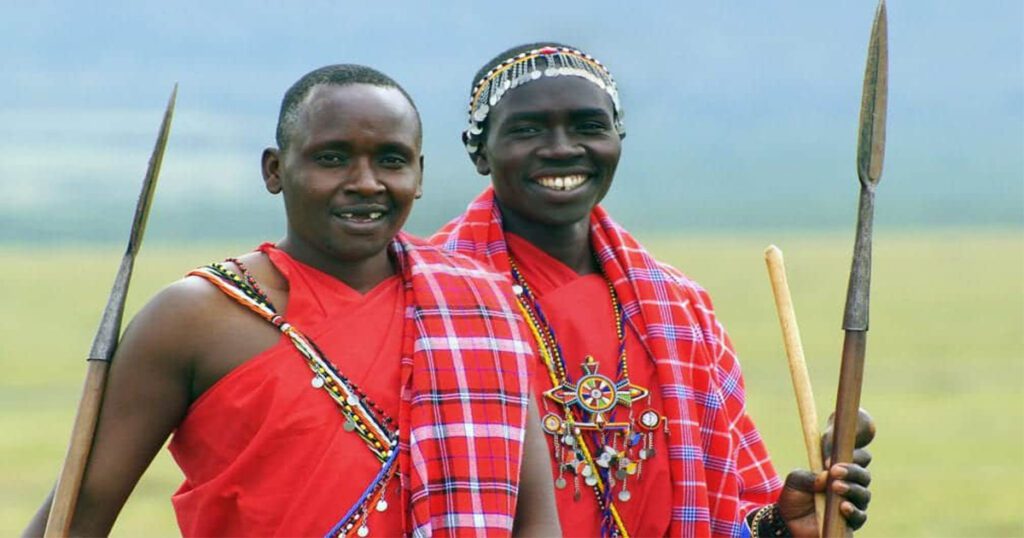
The Maasai have their own religion based on the belief in the great god “Angai”. They believe that all cows are a gift from their God and for this reason they are very valuable and sacred. One of their most important religious beliefs is great respect for the spirits of their ancestors.
As can be guessed from the profession of this important African tribe, most of their food includes meat, milk and cow blood.
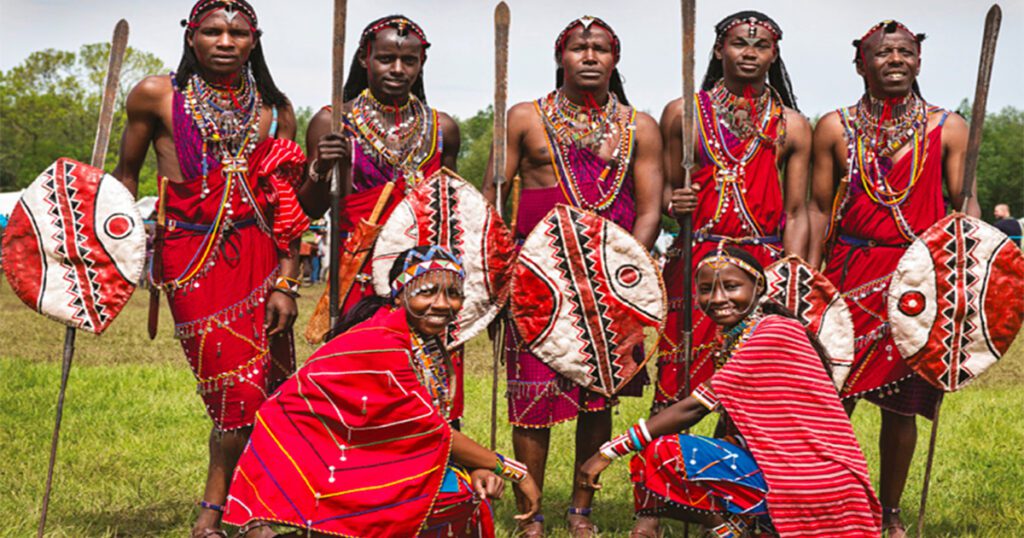
Zulu tribe
The Zulu tribe, which is not only the largest and most powerful tribe in South Africa, but also a great empire. The Zulus live in KwaZulu-Natal, South Africa and have a population of more than 10 million people! Although the economy of this important African continent is based on agriculture, but their social structure is strongly based on militarism and warfare.
- Strange traditions and beliefs:
One of the important ceremonies of this tribe is called “Okuptuola” and young men must show their suitability for marriage by holding a hunting ceremony. They also believe in shamans who are diviners and mediators between humans and spirits.
The Zulu language is Zulu (isiZulu), which is one of the 11 official languages of South Africa.
Zulu clothes are made of animal skins and colored fabrics that are used in special ceremonies.
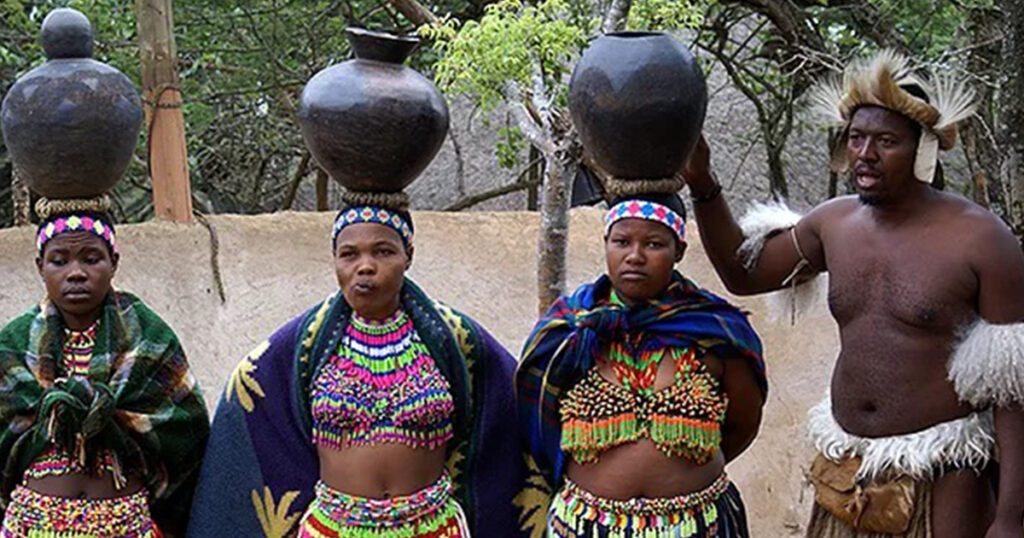
Respecting ancestors has been a value in Africa since the beginning, and the Zulu tribe is no exception! This issue is so important in this famous African tribe that their sight is based on the worship of the spirits of ancestors and respect for nature. Of course, it should be mentioned that many Zulus have also converted to Christianity.
Due to their skills in agriculture, the Zulu tribe has a more diverse food basket, which includes corn, vegetables, beef and chicken, and foods such as porridge and corn bread in meals.
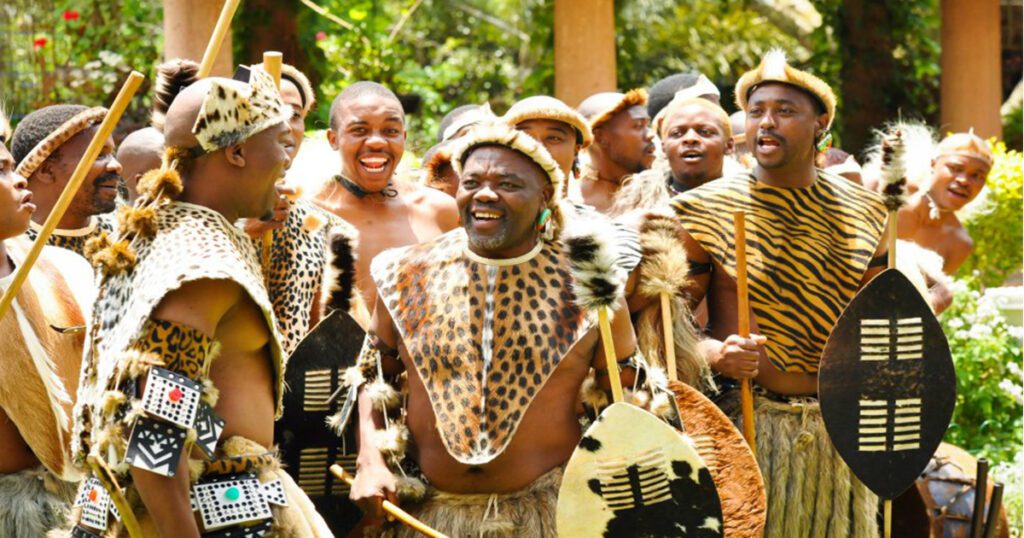
Sen Bushman tribe
If a list of the world’s oldest human groups were to be presented, the San Bushmen tribe would certainly be among them. The history of the origin of the Bushmen goes back thousands of years and currently lives in the Kalahari desert in Botswana, Namibia and South Africa. Their livelihood is also by hunting and gathering plants. In general, considering the lifestyle of the old Bushmen, it can be claimed that they have completely adapted their lives to nature.
- Strange traditions and beliefs:
One of the interesting skills that the Bushmen have mastered is following their tracks and how they hunt, which is by means of poison arrows! Regarding the famous traditions of the Bushman tribe, the ritual dances that are performed to communicate with the spirits of the ancestors have always been considered. These dances sometimes reach a state of trance where the shamans gain their healing powers.
Their language includes click-like sounds, which are rare among other languages of the world and very difficult to learn.
As we said, the Bushmen are very skilled in hunting, and therefore their clothes are made from the skins of the animals they hunt. They also paint their bodies with natural colors.
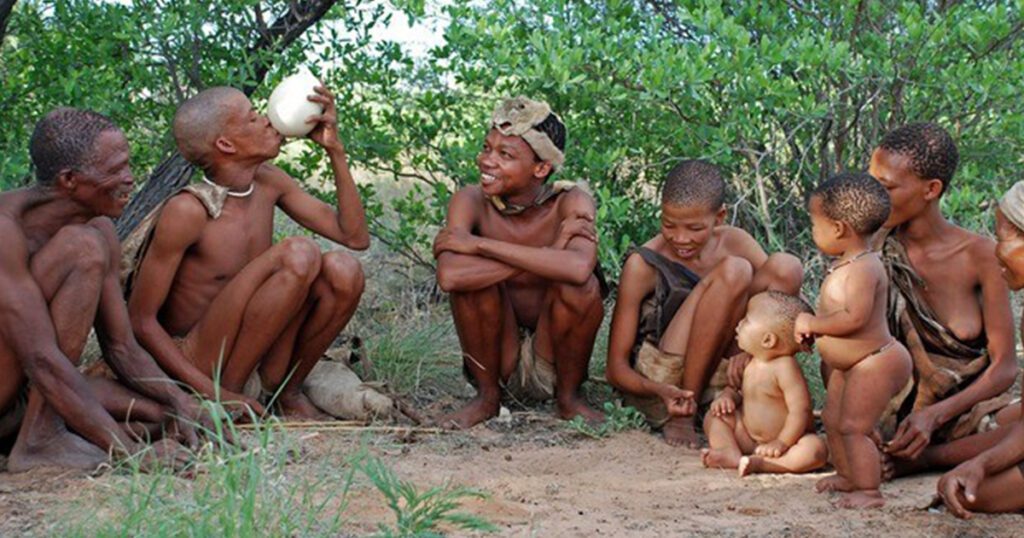
Bushmen are not religious, but believe in the existence of a “supreme creator” and share most of their values with Christianity and other religions. Like most African tribes, this tribe respects the spirits of ancestors and creatures of nature.
Hunting has a direct impact on the eating habits of the Bushmen, and their main foods include meat, fruits, and edible plants. Since this tribe lives in houses made of leaves and has not yet been modernized, they use traditional methods such as drying and smoking to preserve food.
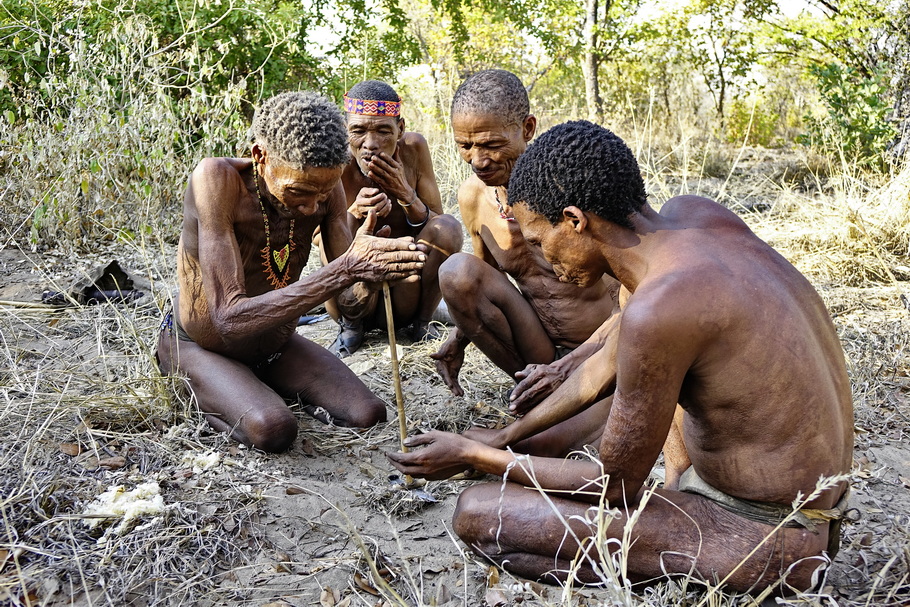
Ashanti tribe
The Ashanti tribe established one of the richest and most influential West African kingdoms in Ghana in the 17th and 18th centuries. Most of the wealth of this important African tribe is obtained from gold mining and trade. In addition to these two industries, agriculture and especially the cultivation of products such as cocoa, yam and banana are also one of the main sources of income for the tribe.
- Strange traditions and beliefs:
In the Ashanti tribe, gold is a symbol of wealth and respect, and the connection of this issue with the political and hierarchical system of the tribe has led to the creation of magnificent coronation ceremonies with dance, music and gifts of gold.
Their language is Twi, which is one of the Akan languages.
Ashanti clothes are woven from colorful cotton fabrics that are made by their own hands and are part of the tribe’s handicrafts.
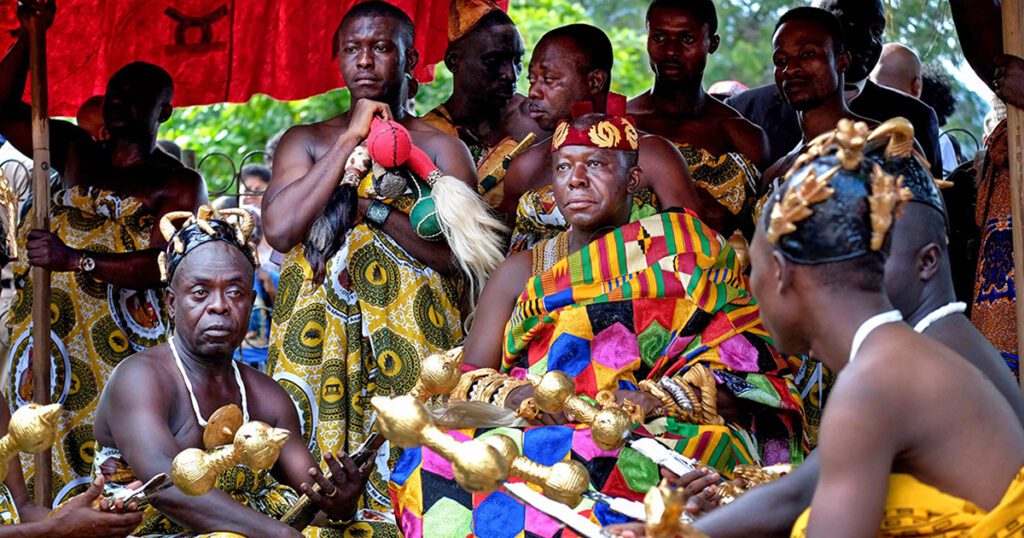
Ashanti religion is a combination of traditional beliefs and Christianity. They respect the spirits of ancestors and nature gods and believe that these spirits can influence people’s lives.
Ashanti cuisine includes thick soups, yams, rice and meat. They use local spices and herbs to flavor their food.
Read more:
Zero to hundred trip to South Africa with Vank star
The best African food that should not be missed!
A tour of the animal kingdom of South Africa
The Himba tribe
500 years ago, a nomadic tribe was formed in the north of Namibia, and it can almost be said that it has maintained its traditions and resisted changes since then. The Himba are still cattle breeders like in the past and are engaged in raising cows and goats.
- Strange traditions and beliefs:
The most famous tradition of this tribe is related to their appearance! The Himba smear their body and face and even their hair with a paste of butter, red soil and local plants, which is a symbol of beauty and provides protection from the scorching sun of the desert.
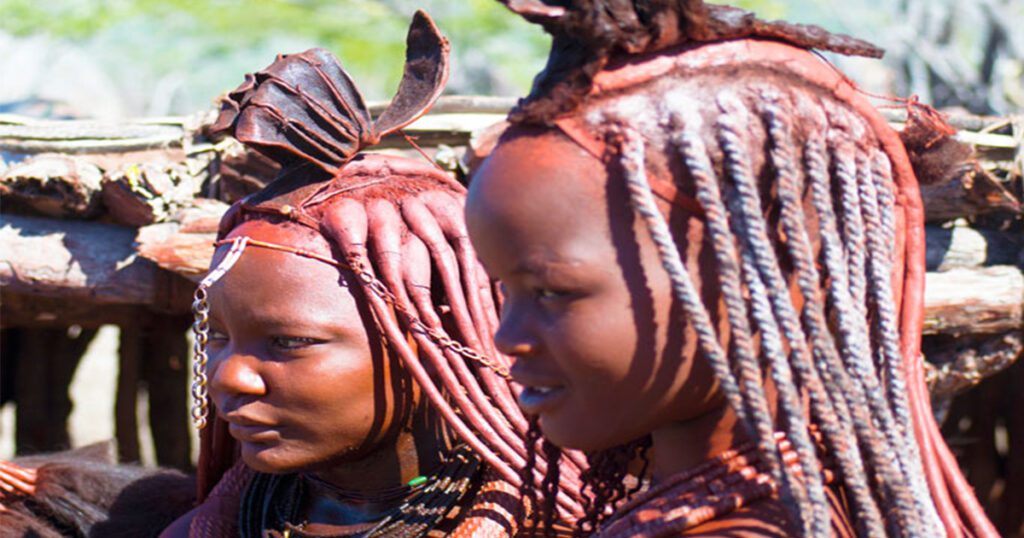
The language of this African tribe is Ohimba, which is one of the dialects of the Namibian Heru language.
Since the Hibas paint their bodies red and this is part of their traditions, wearing clothes is not common in this tribe and they are usually half naked. They cover only a few parts of their body with clothes made of animal skins.
Regarding religion, the Himba also strictly adhere to the traditional beliefs of the tribe, which is the worship of “Mukuru”, the spirits of the ancestors, and communication with the god of the heavens.
The main food of the Himba includes milk, meat and corn, and they use local plants to prepare simple dishes.
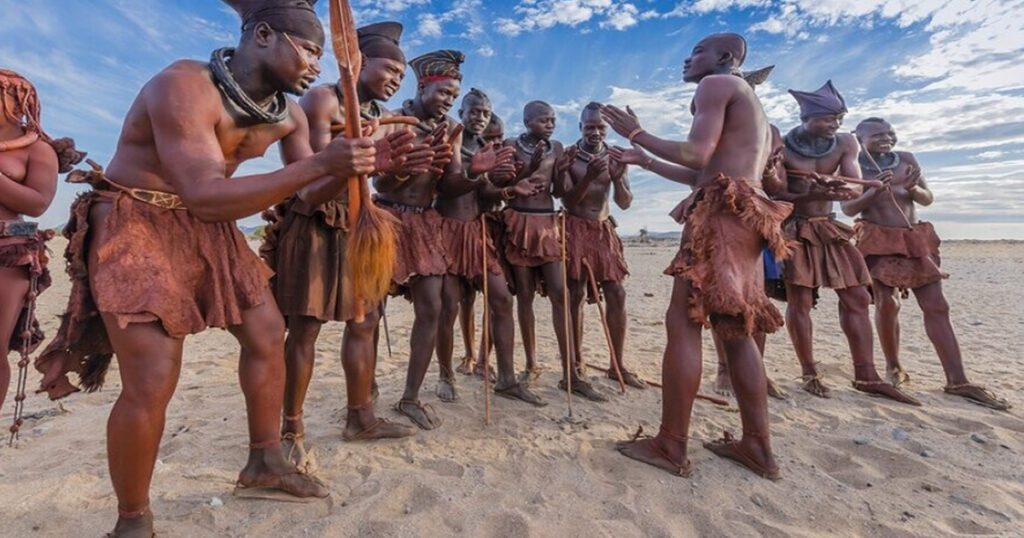
Yoruba tribe
One of the oldest, most important and largest African tribes in Nigeria and West Africa is the Yoruba tribe with more than 40 million people and is famous for its rich culture, visual arts, music and religious traditions. The interesting thing about them is that in addition to farming, they make money through their art! Yorubas are famous for making and selling works of art such as wooden masks and bronze sculptures.
- Strange traditions and beliefs:
The most famous tradition among the Yoruba is the religious ritual of worshiping the spirits of the gods, which is performed using music and dance. Divination and fortune-telling are also very common among them.
The Yoruba language, which is one of the Niger-Congo languages, is the official and native language of this tribe.
Tribal clothes are hand-knotted and traditionally woven from colorful and patterned fabrics and then sewn. Generally, women’s clothing consists of a long skirt, blouse and shawl.
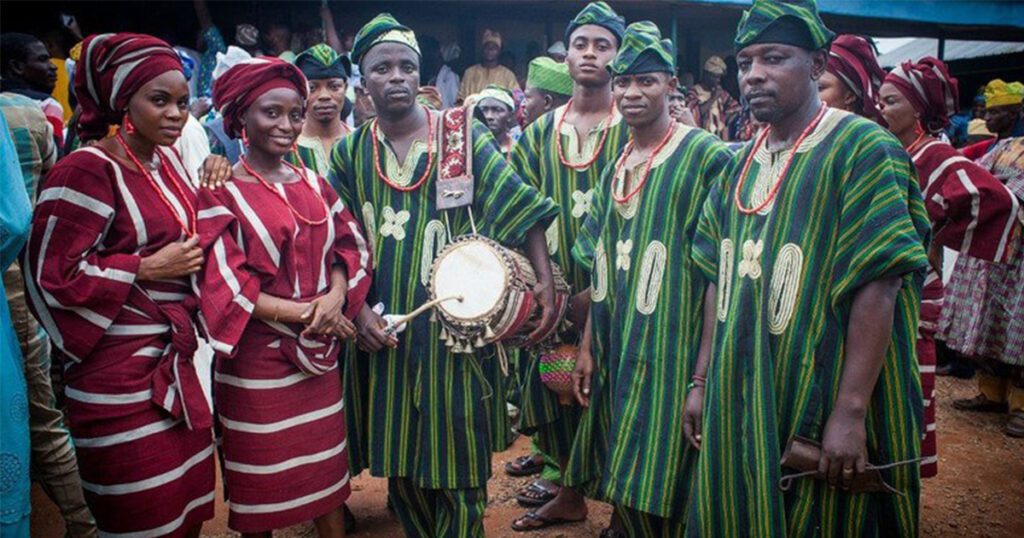
It can be said that the Yoruba religion is a combination of Christian beliefs and traditional beliefs.
The cuisine of this African tribe consists of all kinds of stews, fish, yams and rice, and they use a lot of spices and aromatic herbs in their dishes.
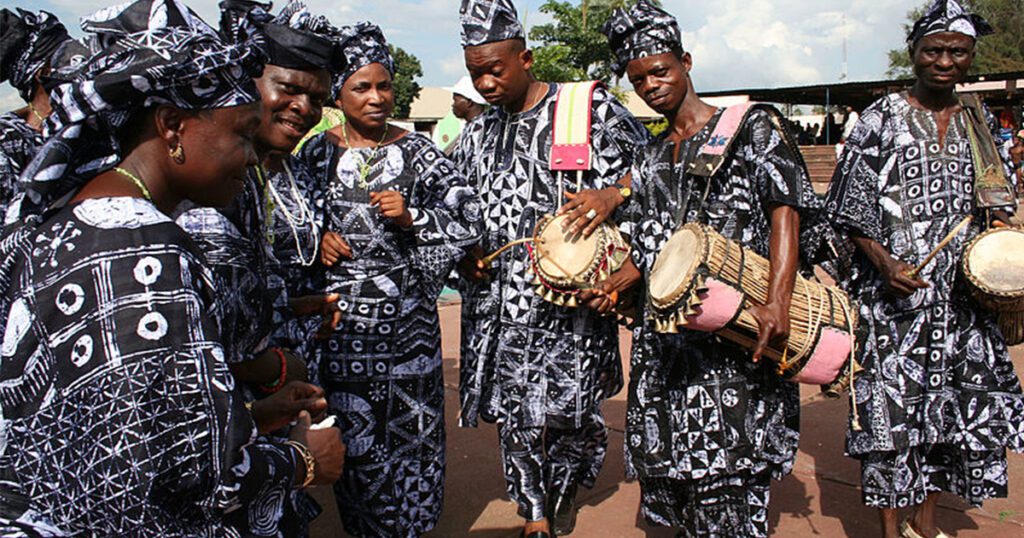
Previous Ibo
The Ibo are another large tribe in southeastern Nigeria and are known for their decentralized political system in which small communities have autonomous local leaders. The people of this Shem tribe have a very good economic and business spirit and are engaged in business inside and outside Nigeria; Of course, in addition to this, agriculture is also one of the dominant occupations of the tribe.
Igbo language is the mother tongue of the Ibos, which is one of the Niger-Congo languages.
The Ibos accept a mixture of traditional beliefs and Christianity, and their traditional religions include the worship of spirits and nature gods.
The Ibos use a lot of local spices and aromatic herbs in their food, and for this reason, most of their dishes are spicy. Their food basket usually consists of soup, fish and yam.
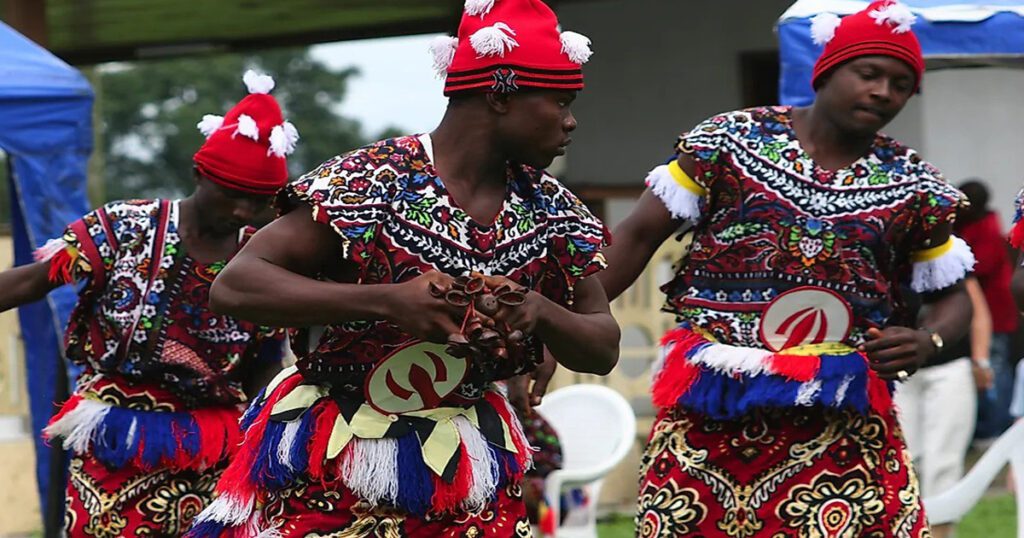
Xhosa tribe
This tribe of 8 million people is one of the Mehr ethnic groups in the Eastern Cape province of South Africa, which is famous for its political and cultural role in the apartheid struggles of this country. The main activities of the Xhosa are in agriculture and animal husbandry, and they also do handicrafts such as weaving and making jewelry.
- Strange traditions and beliefs:
One of the most important Xhosa rituals is “Olwaloko”, which is a luxurious celebration for male circumcision and puberty.
Xhosa language (isiXhosa) is one of the official languages of South Africa.
The clothes of this African tribe are also traditional and colorful, but the most obvious feature of their clothing is colorful beads and special hats.
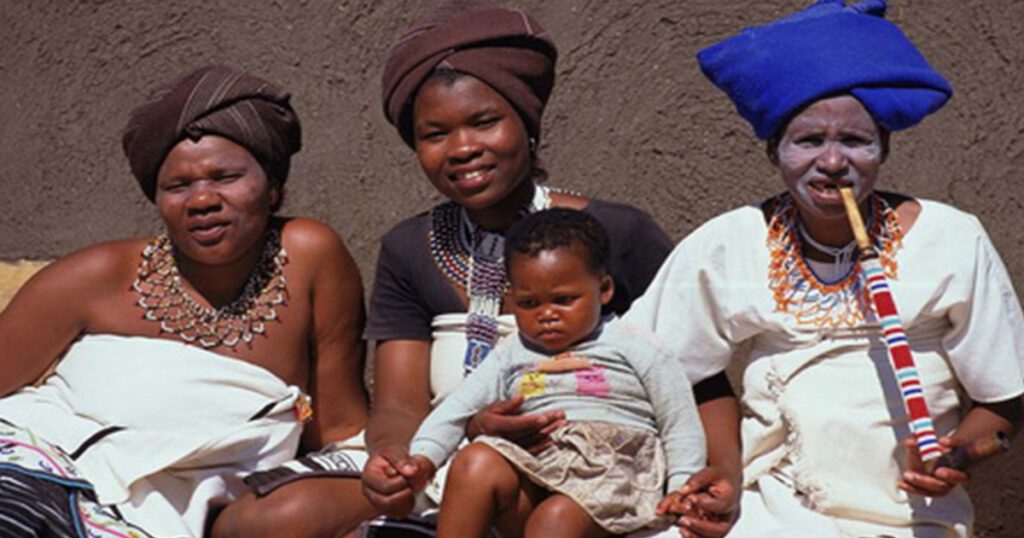
The Xhosa religion is a combination of traditional beliefs with the seasoning of Christianity.
Most Khosa dishes consist of corn, seafood, meat and vegetables.
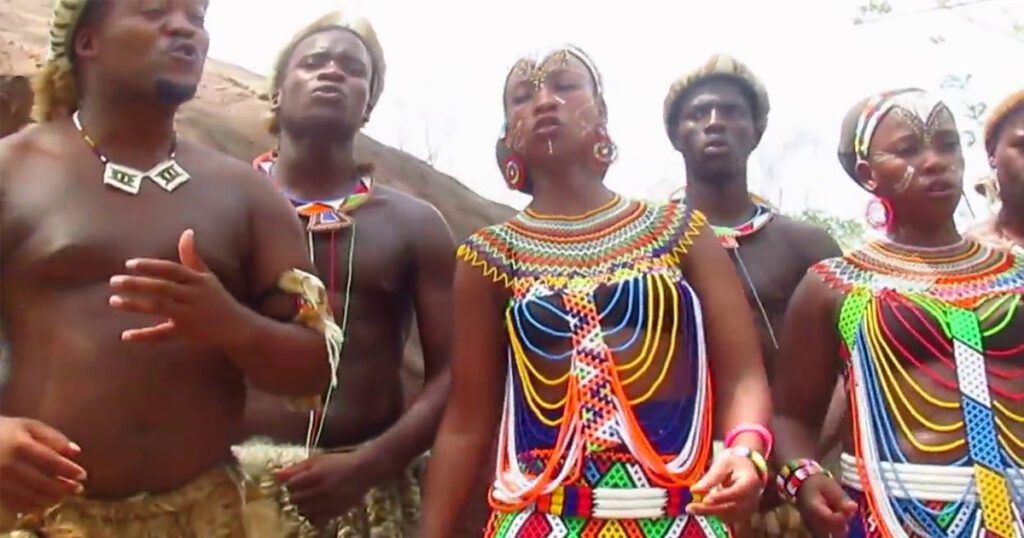
Hausa tribe
Another African tribe that is very famous in the west of the country, especially in Nigeria and Niger, is Hausa. The name of this tribe is tied to great empires such as Kanem-Borno and Sokoto, and its history goes back several centuries! The occupation of the Hausa tribe is agriculture, cattle breeding and trade, and since they are skilled traders, they play an important role in the markets of West Africa.
Hausa is one of the main languages of West Africa and one of the official languages of Nigeria.
Hausa clothing includes the “baba riga”, a long, loose dress, and traditional hats.
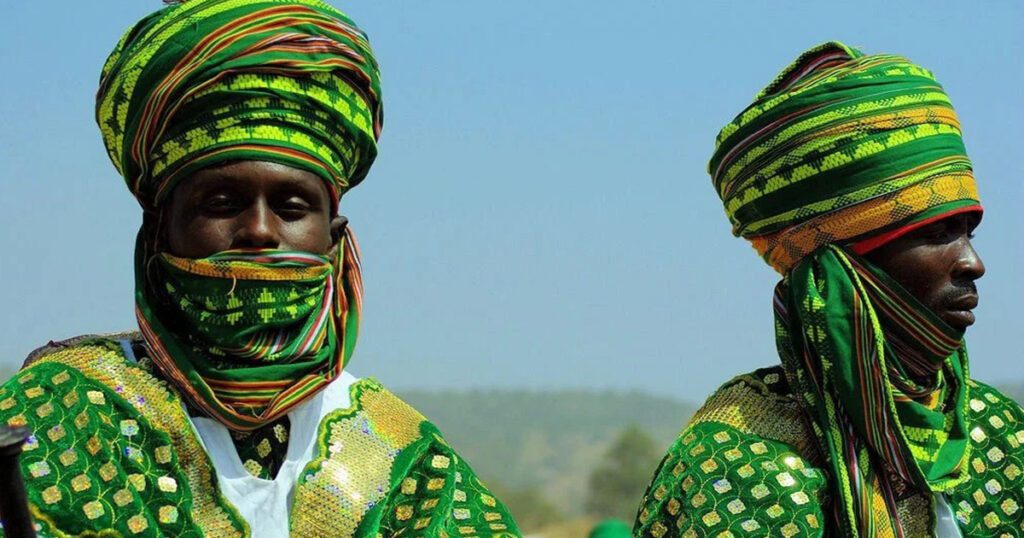
It is interesting to know that most Hausa are Muslims and their culture is completely influenced by Islam.
Most of the foods of this African tribe include rice, grains, meat, and all kinds of soups are particularly popular among Hausa.
final word
African tribes, with their cultural diversity, are a treasure trove of history, art, and knowledge. What is always interesting about these tribes is the preservation and strengthening of their identity and cultural heritage despite modern challenges. If you are planning to travel to South Africa and interact directly with these African tribes, you can contact our experts at Setara Vanak Airline Agency every day from 8:30 to 16:00 to prepare your trip to this beautiful land. . It should be mentioned that Star Vank agency is one of the direct organizers of South Africa tour.
Copying of the contents of Setare Vanak Airline Agency is prohibited only by mentioning the source.
RCO NEWS











